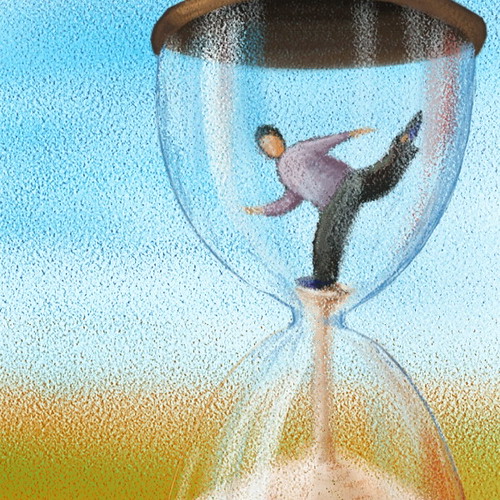I often say that the most valuable resource we have in life is time. Time is the only resource that cannot get replenished. You can perhaps extend it a bit by living healthy, but beyond that what you get is what you get, and your responsibility is to use it wisely.
So if there is one thing that bothers me, it’s the reckless wasting time. Which seems to be the main hobby of many of us. Until one day we realize that we’ve let most of our life fly by and we’ve done so little with it when we could have done so much.
Considering this, I’d like to give you a simple roadmap to help you avoid wasting precious time and make the most out of your own life.
It’s All About Your Values
What does it mean to use your time well? I believe it means to use it doing things that are aligned with your values, with the things that are most important to you. Now the trick is that each person has their own unique set of values. Examples of such values include:
- Having fun;
- Helping others;
- Interacting with others;
- Creating;
- Learning, etc.
Depending on your own values, using your time well will have a unique significance for you. Your first task regarding this is to ask yourself: “what is most important to me in life?” and seek to identify your dominant values with as much precision as possible.
Aligning Your Life with Your Values
Once you have a good understanding of your own values, it’s time to get as many activities as possible in your program that are well aligned with them and cut out the ones that are not.

You’ll have to do a realistic assessment of how you use your time each day and start making steady changes until your use of your time is well aligned with your values. In general, there are three types of errors you can spot in the way you use your time right now:
1) Living by other people’s values. This is when you invest your time doing something that others or society in general tell you that you should do, but they don’t truly match your values.
For example, seeking to build a family because that’s what most people do, although personally you don’t actually want a family and you don’t feel it would make you happier. This is why it’s important to get clear on what matters to you, and assess the actions you take based on your own values.
2) Seeking instant gratification. This is when you do something that quickly satisfies one of your values, although there are alternatives that require more time and effort but in terms of quality are radically better.
For instance, chatting with a friend on Facebook when you could go out with them and chat face to face. Although the second option will prove much more gratifying if connection is an important value for you, you have to invite them out, get out of the house, go somewhere and meet them. Which delays the gratification, but it’s worth it.
3) Not leaving your comfort zone. This means doing things that are trouble-free, instead of challenging yourself, even if the pleasure they give you is feeble and it fades quickly.
For example, maybe you value freedom a lot and you could achieve a lot more freedom by starting your own business and turning it into a success. But this implies risks and uncertainty and you don’t want that, so you choose to stay in your regular 9 to 5 job, which is comfy but not at all fulfilling in terms of freedom.
Fortunately, by clarifying your top values and assessing how you use your time based on them, you can realize when you’re letting one or more of these 3 errors take hold of your time and squander it.
Then all you need is the fortitude and determination to correct these errors and make the best use of your valuable time and your irreplaceable existence. And these are traits that you can develop with practice, plus a bit of patience. Remember: all you have is one life. Live it wisely.
PS: Two of my articles have been recently published on DatingAdvice.com. One is on approaching women, the other is about long-term relationships. Check them out; I think you’ll like what you’ll learn.
Image courtesy of wowyt

 Attending events that are social in nature: parties, classes, networking events, etc.
Attending events that are social in nature: parties, classes, networking events, etc. If you’re shy and interested in finding a job, you may be wondering: What are some good jobs for shy people?
If you’re shy and interested in finding a job, you may be wondering: What are some good jobs for shy people?



